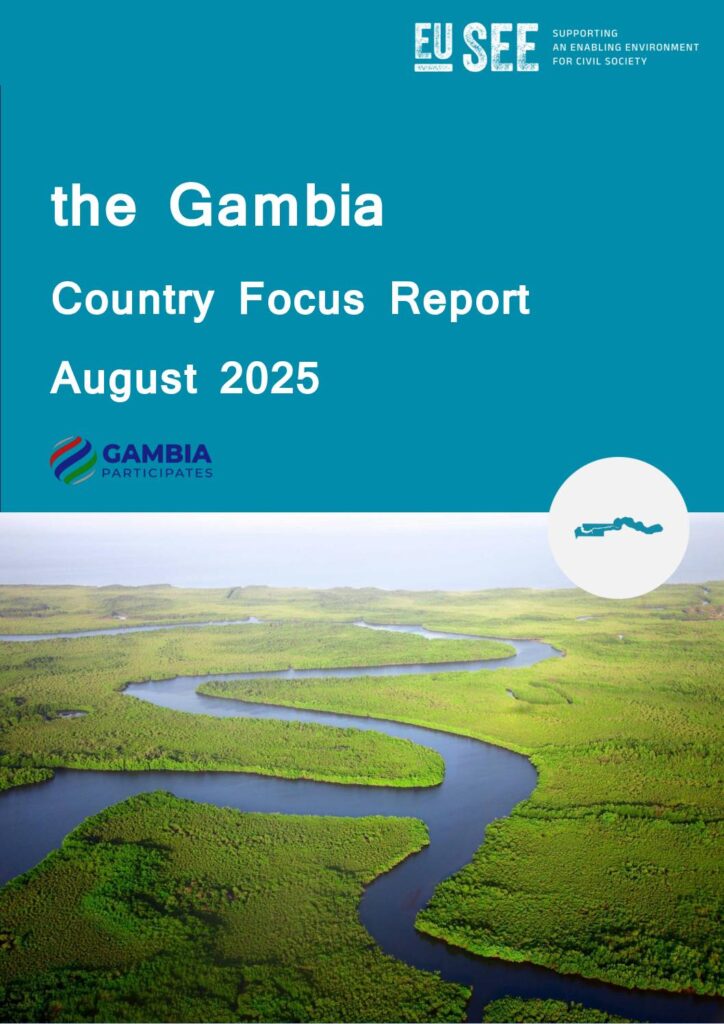The Republic of The Gambia continues its democratic journey as one of West Africa’s most significant political transitions in recent years. The small nation of 2.5 million people is surrounded by Senegal except for its Atlantic coastline. Since the end of Yahya Jammeh’s authoritarian rule in 2017, The Gambia has set up mechanisms to address previous human right violations and establish democratic governance. For instance, the Truth, Reconciliation and Reparations Commission, established in 2017 to address human rights violations under Jammeh’s regime, continues its work. It published its findings in 2022 with ongoing discussions about the Government’s response to the Commission’s recommendations. Civil society actors have played a crucial role, particularly in advocating for accountability measures and reparations programs.
Enabling principles scores
Enabling principles scores
The current political landscape reflects the consolidation of President Barrow’s National People’s Party (NPP) government, which has governed since winning re-election in December 2021 with 53.2% of the vote. A key issue facing the Government is the Constitution reform process, which was initiated again by the Government through the Ministry of Justice after the failure of the previous 2020 draft. Unfortunately, the 2024 draft constitution failed again at its second reading stage. In addition, presidential elections are scheduled for December 2026, providing another key test of democratic consolidation.
International support for The Gambia’s democratic development has remained substantial in 2024, with the European Union, United States, and other partners continuing significant financial and technical assistance. The Gambia Recovery and Development Plan (2023-2027) has guided development priorities, though implementation challenges persist.
However, developments over the past year indicate that civic space, while still relatively open, faces new pressures. Government rhetoric toward certain civil society organisations has become increasingly critical, particularly toward those engaged in governance and accountability work. This shift represents a concerning trend that affects the overall enabling environment.

